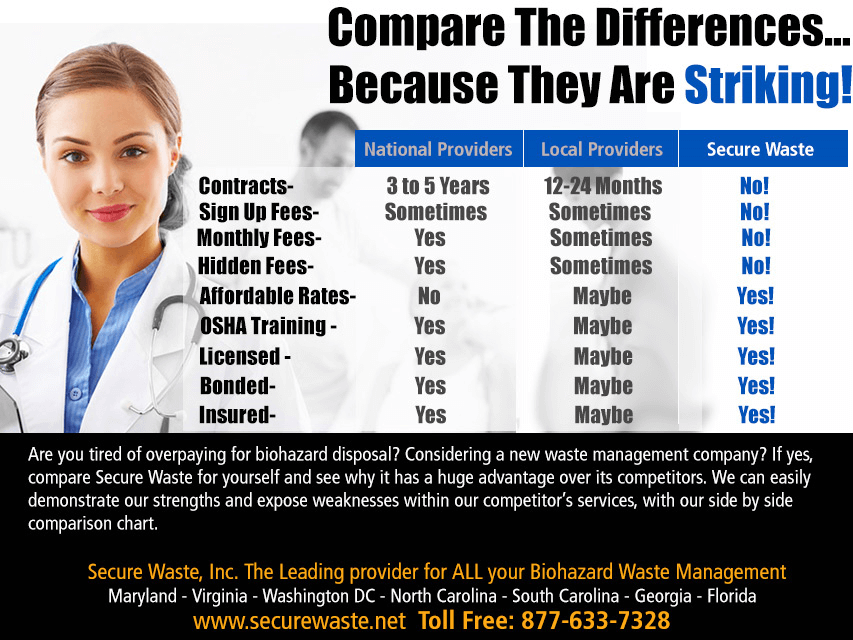Washington DC Biohazard Waste Regulations
Highlighted Requirements
Please note that waste generated by households in the District of Columbia are not regulated by the Hazardous Waste regulations. Proper Disposal of “Sharps”
The Sustainable DC Omnibus Amendment Act of 2014 bans the use of food service products made of expanded polystyrene, commonly known as foam or StyrofoamTM. The ban begins on January 1, 2016 and applies to all District businesses and organizations that serve food.
Overview
The Washington DC hazardous Waste Program protects human health and therefore the environment from the hazards of mismanaged waste, helps reduce the number of waste generated, and ensures that generated wastes are managed in an environmentally sound manner. Facilities that generate, transport, treat, store, or eliminate venturous waste are regulated to make sure correct management of hazardous waste from the moment it’s generated till its ultimate disposal or destruction.
The Washington DC hazardous Waste Program published many documents about the Washington DC biohazard waste regulations to help businesses and residents understand hazardous and other waste, and their proper disposal.
Facilities. Facilities include all entities that are not households including, but not limited to: businesses, non-profits, and government agencies.
- Who Generates Hazardous Waste?
- Proper Management of Bulbs and Batteries
- Car repair shop informational slides
- Building manager informational slides
The Washington DC have different regulations for residents waste. The information provided below is guidance and best practices.
- How to clean up a broken light bulb
- Proper disposal of pharmaceuticals
- DEA residential pharmaceutical drop-off search tool
- Proper Disposal of “Sharps”
- Household Hazardous Waste link
To report Washington DC hazardous spills call 911. After the spill is under control, contact District’s Homeland Security and Emergency Management Agency at 202 727-6161 and DOEE-HWP at 202 671-3308.
OSHA Regulations
In addition to the state medical waste environmental regulations there are some Occupational Safety and Health Administration rules that apply to medical/infectious waste. Washington DC is covered entirely by the federal OSHA program. OSHA rules (Occupational Exposure to Bloodborne Pathogens Standards) impact various aspects of medical/infectious waste, including management of sharps, requirements for containers that hold or store medical/infectious waste, labeling of medical/infectious waste bags/containers, and employee training.
Contact Details
For more information about Washington DC hazard waste please contact one of the following inspectors: Washington DC Iowa Department of Natural Resources Solid Waste Division
: Victoria North 202.535.1909
: Email
: Lawrence Williams 202.535.2298
: Email
: Jan Walwyn 202.671.5120
: Email
: Website
OSHA (state)
: (800) 656-4972
: Website

